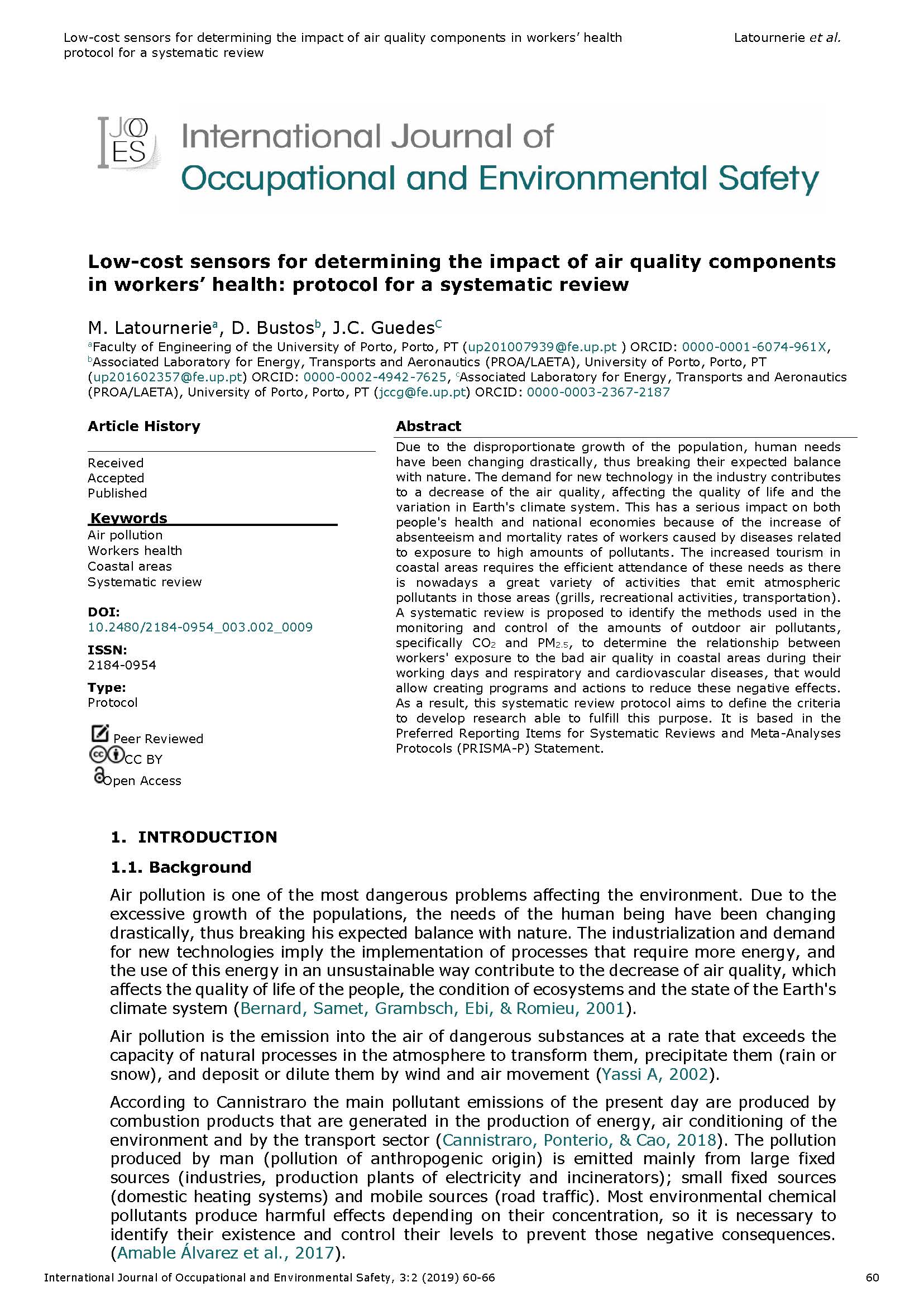Low-cost sensors for determining the impact of air quality components in workers’ health: protocol for a systematic review.
Main Article Content
Abstract
Due to the disproportionate growth of the population, human needs have been changing drastically, thus breaking their expected balance with nature. Industrialization and demands of new technologies imply the application of processes that require more energy, which, used in an unsustainable way, contributes to a decrease of the air quality, affecting the quality of life and the variation in Earth's climate system. This has a serious impact on both people's health and national economies because of the increase of absenteeism and mortality rates of workers caused by diseases related to exposure to high amounts of pollutants. The increased tourism in coastal areas requires the efficient attendance of these needs as there is nowadays a great variety of activities that emit atmospheric pollutants in those areas (grills, recreational activities, transportation). A systematic review is proposed to identify the methods used in the monitoring and control of the amounts of outdoor air pollutants, specifically CO2 and PM 2.5, to determine the relationship between workers' exposure to the bad quality air in coastal areas during their working days and respiratory and cardiovascular diseases, that would allow creating programs and actions to reduce these negative effects. As a result, this systematic review protocol aims to define the criteria to develop research able to fulfill this purpose. It is based in the Preferred Reporting Items for Systematic Reviews and Meta-Analyses Protocols (PRISMA-P) Statement.

